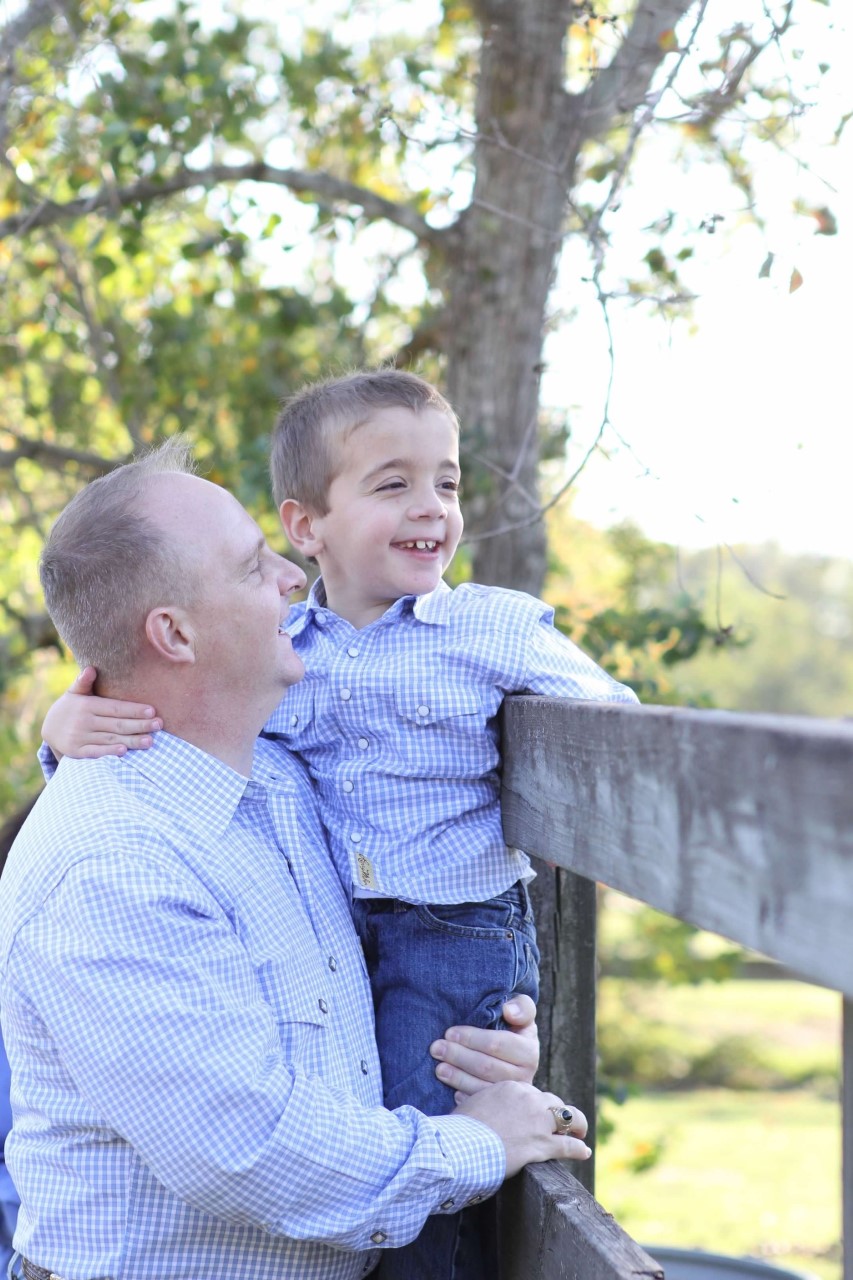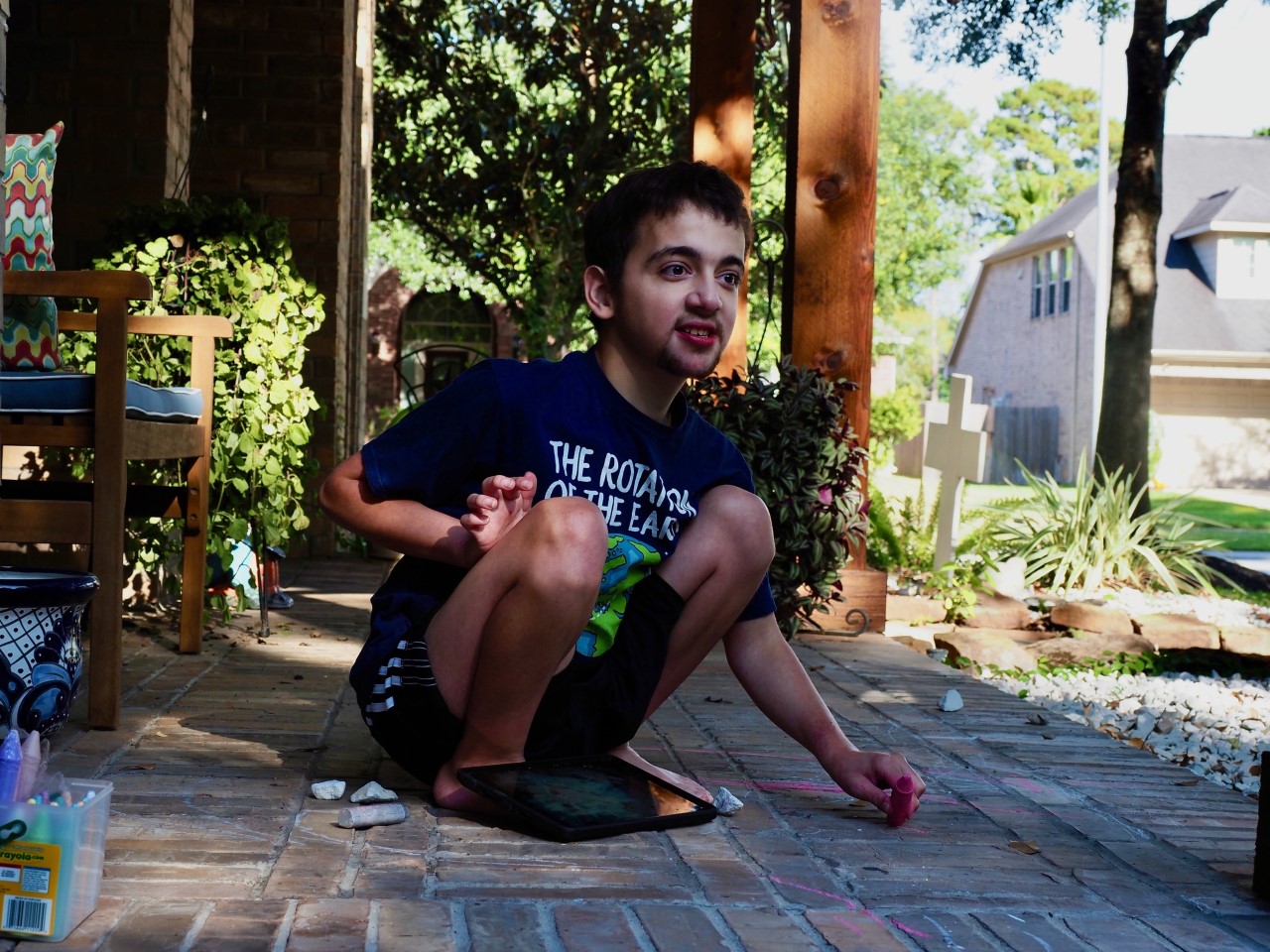Evan's Story: Children's Memorial Hermann Hospital Gave our Son Renewed Hope and Optimism

Kyle and Tina Carkhuff describe their 17-year-old son, Evan, as one happy kid. But that wasn't always the case. After Evan was born, he faced significant developmental delays and later struggled with uncontrollable seizures and scoliosis. But he never gave up-and neither did his parents.
When Evan was born in September 2005, in their hometown of Northampton, Pa., Kyle and Tina knew instantly something was wrong, but they didn't know what it was specifically. At four months old, Evan began seeing a pediatric neurologist and started physical and occupational therapies. Then, when he was 16 months old, he had his first seizure.
At his worst, Evan was having over 200 seizures a month. His doctors in Philadelphia didn't have answers, but they knew his seizures could end up becoming problematic. And with Evan's autism diagnosis and other symptoms, it was hard for the Carkhuffs to know which medical specialists to turn to. His pediatric neurologist in Philadelphia encouraged the Carkhuffs to move to Houston and seek care from specialists who treat children with highly complex medical conditions. The family moved to Texas in 2007.
A Collaborative Approach
"We heard from other special-needs families about Children's Memorial Hermann Hospital," Tina said. The family soon transferred Evan's care to a multidisciplinary team from McGovern Medical School at UTHealth Houston, affiliated with Children's Memorial Hermann Hospital, which included a pediatric neurosurgeon, pediatric epileptologist, radiologist and pediatric orthopedic surgeon. After presenting his case during an epilepsy surgery conference, the group determined Evan would be an excellent candidate for vagus nerve stimulator (VNS) therapy.
A VNS is implanted to deliver electrical pulses to the vagus nerve in the neck, and the vagus nerve carries those pulses to the brain to help reduce seizures. If a seizure is about to happen, the VNS will sense this and send extra electrical pulses to either prevent the seizure or make it less severe.
In December 2019, Evan underwent surgery to have his VNS implantation procedure at Children's Memorial Hermann Hospital. His quality of life improved tremendously after VNS surgery, and he experienced a decrease in the number of seizures. Evan is now at the point where he has not seized at all in over two and a half years and has weaned off a few of his seizure medications.
Overcoming Another Hurdle
As Evan got older, Tina and Kyle noticed their son's spine was crooked and that sometimes when he walked, he would fall over. In 2018, Evan was referred to Shiraz Younas, MD, associate professor at UTHealth Houston and pediatric orthopedic surgeon affiliated with Children's Memorial Hermann Hospital. At 14, Evan had scoliosis surgery to correct a 72-degree curvature in his spine. It was a procedure he needed but one that had to be postponed for a while until his doctors could get his seizures under control.
"Dr. Younas said there were no nonsurgical treatments for Evan," said Tina. "He said in less severe cases, they might try a brace or physical therapy, but Evan's autism and seizures made these a bit harder to do because of his lack of ability to understand and be compliant. He felt like surgery was the best option, but he wanted to see how Evan grew before we actually did the surgery. He said it was possible the curve may stop progressing, but instead of staying stable, it got worse."
Evan had back surgery to treat his scoliosis six months after the VNS. Typically, a patient will undergo an MRI of the spine so the surgeons know exactly what area to target. However, Evan's VNS device is not compatible with an MRI machine, so Dr. Younas was unable to obtain advanced imaging prior to surgery. Also, due to the risk of seizures, Evan's nerves had to be monitored directly without the typical neuromonitoring that can be used during surgery.
"Back surgery can be a long surgery, and we wanted to make sure Evan's seizures were controlled because you don't want a child to seize during this surgery," said Dr. Younas. "Evan's scoliosis surgery was more complicated because we didn't have the MRI data. Instead, we had to hook each nerve in his spine to a lead and view it on a computer screen to give us an idea of where to place the metal rods to straighten his spine. During the procedure, his VNS was turned off. The stimulator manufacturer was present and provided technical recommendations. It was a complicated surgery, but because of the team approach beforehand, Evan's surgery went as well as it did."
A Magical Journey
Without seizures and without having to rely on a wheelchair, Evan is a happy kid. He loves school, his dogs and his family. The Carkhuffs attribute a lot of that to the specialized care he received. "What is so special about Children's Memorial Hermann Hospital is that they treat the entire patient. Every doctor we encountered-whether it was for epilepsy, scoliosis or autism-looked at Evan as a whole person. They communicated exceptionally well and took every precaution to keep Evan safe. The entire care team's collaboration, their skill and their interest in helping their patients is what made this such a magical journey. We know his care team is happy to see Evan's accomplishments as much as we are."
To learn more about the scoliosis program at Children's Memorial Hermann Hospital, visit memorialhermann.org/childrens-scoliosis








